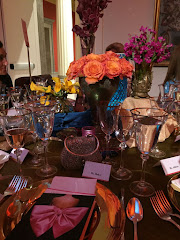It has been said that Americans are ethnocentric. We appear to care nothing about other cultures, and worse, care nothing about learning. We expect other cultures to live just as we do and complain when they do not. The whole point of visiting another culture is to immerse oneself in their way of life, cuisine, traditions, customs, dress, mannerisms. To respect their religion, behavior, and know the rules of etiquette. To fit in.
Today we address Asian culture and offer a few tips for our kind readers. Always look up the weather and religion before traveling so one may pack appropriate clothes. Learn a few key phrases such as your "magic words: please, may I, thank you. The following are a few good to know phrases:
- Hello, Good Afternoon and Evening is: Ni hao, pronounced "Nee how"
- Good Morning is: Zao, pronounced "Dzow"
- Please is: Qung, pronounced "Ching"
- Thank you is: Xiexie, pronounced "Syeh Syeh"
- Yes is: Shi, pronounced "Sher"
- Goodbye is: Zaijian, pronounced "Dzigh-jy-en"
Next, we list a few good to know tips that will help our readers understand the Asian culture in general. Each country will have particular rules, but these are just general, hopefully helpful tips:
- The Chinese do not "line up." They push in large crowds.
- Confucianism is not a religion. It is a way of life based on the "Golden Rule." Treat others as you wish to be treated yourself. It also encompasses the idea of the communal rather than personal. The art of living and the good of the group takes precedence over individuality.
- Buddhism, Islam ism, Taoism, Hinduism and Shinto are other religions in China.
- Western Handshakes are lighter and less firm. To bow is a respectful gesture.
- Eye contact in Asia is always short. Looking at someone for too long, or starring is used as punishment by Mothers to their children who are bad.
- Always accept a business card with both hands, look at it, pause, then put it nicely away in a purse or front jacket pocket. DO NOT put it in your back pocket as this is considered to be an insult.
- Be reserved in speech, volume of speech, dress and posture.
- A smile from an Asian may mean anger, fear, humiliation or apology.
- DO NOT Use any hand gestures. NO "thumbs up." No "O.K." sign with your hand. DO NOT put your hands in your pockets. Keep your hands at your sides instead. NEVER touch anyone on the shoulder, arm or anywhere. DO NOT ever pass an object to a woman unless a close relationship has been established.
- Eat slowly and mind your intake. Asian dinners often consist of a dozen small courses. Taste all and enjoy.
- Sauces are for light dipping. Do not fully dunk or saturate your food.
- The rice bowl is on the LEFT. Rice is eaten with chopsticks. NEVER lick your chopsticks or point them at anyone as Asians consider to to be very rude.
- The soup bowl is on the RIGHT. The solid morsels are eaten with chopsticks. Noodles are eaten by bringing the bowl to your mouth and slurping the noodles from the chopsticks. Slurping is good. Slurping is a compliment to the chef. The liquid soup is drunk directly from the bowl. Replace the lid on the soup bowl when you are finished. Neatly place your chopsticks on top of the lid, or on the chopstick rest.
- Asian legend says: if one holds one's chopsticks close to the tips, one will marry someone close to where you live. If one holds one's chopsticks far up, and away from the tips, one will marry someone far away from where you live.
- Never give a gift, like flowers, in a quantity of 13. Never give a gift of flowers that are white. White flowers are reserved for funerals. The color black is also associated with death. Clocks are associated with death. The numbers 4 and 40 and sets of four are unlucky. Red wrapping is the color of choice for a gift.
- NEVER give a gift of knives, scissors, or other sharp items, not even with a "lucky penny" attached.
- ALWAYS ask permission before photographing anyone.
- ALWAYS show respect for the elderly.
These rules of etiquette are general to Asia. Specific regions have particular rules. Best to check the region you are visiting and check the exact local customs and manners and rules of etiquette. Relax and enjoy!









